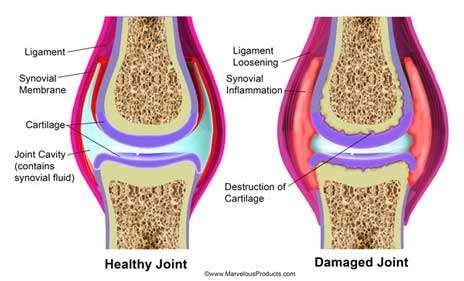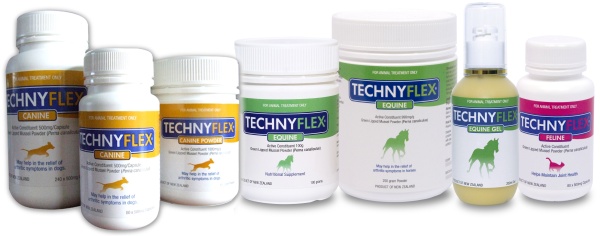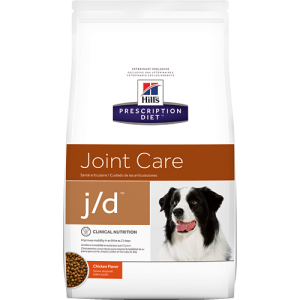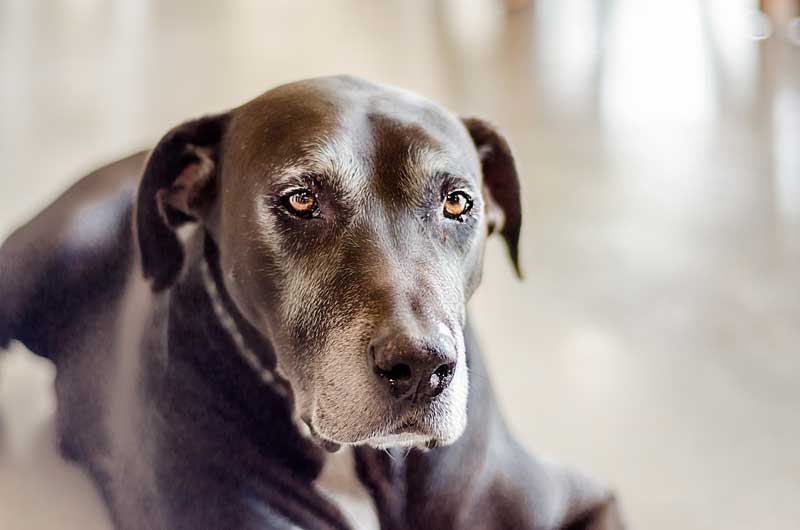When Winter has well and truly set in. It’s this time of year you may notice your old dog or cat has a little more trouble getting up after lying, or rising from a sitting position.
They may appear a little depressed and reluctant to go for walks or have difficulty walking up or down stairs. If your pet is displaying any of these signs, they may be suffering osteoarthritis.
Osteoarthritis or degenerative

Joint diseases are common conditions in older pets or pets that have sustained a joint injury. The disease is the result of the breakdown of joint cartilage and bone erosion and the loss of joint synovial fluid.
Cartilage and synovial fluid act as a cushion to protect the ends of bones at a joint allowing comfortable, unrestricted movement. When cartilage wears away faster than it can be replaced, the joint becomes stiff, mobility is reduced and the exposed bone and nerve endings cause pain and inflammation.
** Symptoms include pain, stiffness and a decrease in the range of movement at the affected joints.
What Causes Arthritis?
- Age
Unfortunately age catches up with us all and the many years of movement can contribute to progressive wear and tear on joints.
- Excess Weight
Carrying extra weight puts joints under more than normal strain, this heightens the chances of joint damage.
- Breed
Although arthritis can occur in any breed, there are certain breeds that do appear more prone than others. Large breed dogs such as Labradors, Retrievers, Shepherds and Rottweilers are more likely to develop arthritis along with Persian, Siamese and Himalayan cat breeds.
- Injury
Trauma to a joint can damage the ligaments and cartilage which increases the chances of developing arthritis later in life. A cruciate ligament tear is an example of a knee injury which is known to progress the disease.
- Genetics
Congenital or hereditary predispositions may make some pets more prone to developing arthritis.
- Infection
Although uncommon, conditions causing an infection within the joint capsule can damage tissue and cartilage progressing the disease.
How do I know if my pet has arthritis?
Dogs may display signs of:
- Stiffness, especially when rising from a lying or sitting position.
- Reluctancy to go for walks or lag behinds when walking.
- Difficulties going up or down stairs.
- Aggression or pain when touched in affected areas.
- Shaking or trembling of the limbs.
- Grunting when changing positions

Cats may display signs of:
- Reluctances to jump, run or play.
- Reduction of self-grooming.
- A stiff gait or a limp when walking.
- Aggression when handled.

What Can You Do?

Natural Remedies
Medications that contain glucosamine can make a big difference to arthritis. They work by providing the body with the necessary nutrients for cartilage repair and function. Sasha’s Blend and Pernaease powder are 2 popular products sold at Familypet Vet.

Specific Diets
Prescription diets, specially formulated with the right amount of protein and carbohydrates for your dog`s needs in the Senior years, are enriched with nutraceuticals (greenlip mussel, Abalone, glucosamine and omega 3 oils). To help your dog get the best nutrition possible ask our nurses and vets about our Hills Prescription Diets.

TLC (Tender Loving Care)
Ensure your loved one has a warm, padded bed out of the harsh elements. Cold weather affects the severity of osteoarthritis and lying on a cold, hard surface will only make the symptoms worse. Soft bedding can help support the bones and joints, making your pet more comfortable. Make sure the beds are out of drafty areas and consider buying your dog a warm coat for the winter.

Exercise
Modest daily exercise helps some dogs. Familypet Vet Veterinarians, can commend an appropriate exercise program that strengthen the muscles and ligaments. Some exercise is always better for your pet then none at all, even if done with the help of Anti-inflammatory medication.
If you believe your pet may be experiencing osteoarthritis, come in and see our friendly staff for tips on how to ensure the comfort of your four-legged friend this winter.
What can Familypet Vet do?
- Cartrophen Injections
Cartrophen is a disease-modifying osteoarthritis drug, its actions include:
- Inhibiting enzymes that breakdown cartilage
- Stimulating the production of lubricant and cartilage molecules
- Improves blood circulation to arthritic tissues, thus improving nutrition to the joint
- Stimulates protein production which assist in blocking free radicals.
Cartrophen is an excellent drug administered by injection that will help slow the progression of arthritis. Your dog will need a course of 4 injections with 8/10 dogs responding significantly. We use boosters at 6-8 weeks or otherwise, we repeat a 4-week course in 6 or 12 months depending on your dog’s response.
- Anti-inflammatories
Non-steroidal anti-inflammatory drugs will help situations of worsening pain providing mobility and “Quality of Life “. Painkillers can be prescribed after consultation with a Veterinarian to help control the pain and inflammation symptoms associated with arthritis.
NB: Please don’t give human painkiller tablets to your pets as these can be very toxic, especially to cats.
Where to go from here?
If you believe your pet may be experiencing oestoarthritis, come in and see our friendly staff so we can design a winter warming arthritis plan for your furry friend.
If you have any questions regarding any product mentioned in this article please contact the the team at (08) 8370 3500.
Our pets give us so much, let’s ensure they have a comfortable, pain free time this winter.

